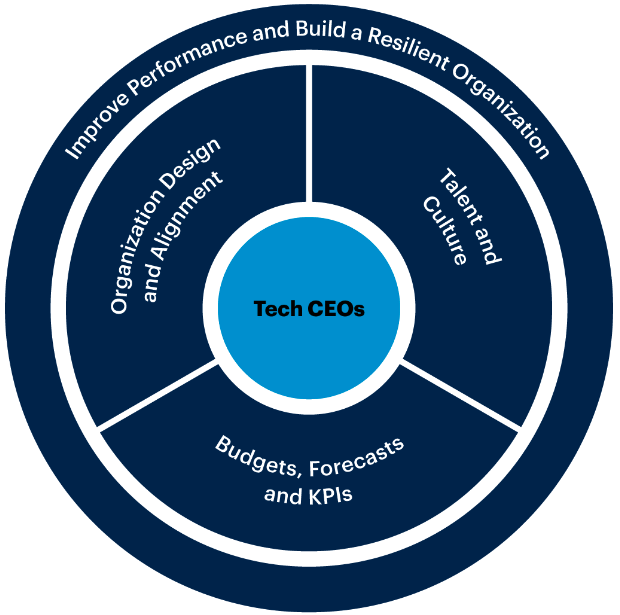Critical Focus Areas for Early Stage Startup CEOs
by Pradyuman
As a startup CEO, you play a pivotal role in steering your company through the uncertainty and challenges of early-stage growth. Your ability to manage finances, build an efficient organization, and foster a dynamic company culture will directly influence your startup’s success. This report focuses on three main areas that demand your attention: Budgets, Forecasting and KPIs; Organization Design and Alignment; and Talent and Culture.

1. Budgets, Forecasting and KPIs
-
Accurate Financial Projections:
Develop reliable budgeting and forecasting models to predict cash flow and prepare for unexpected challenges. By maintaining precise financial projections, you can ensure that your startup remains agile and well-prepared for rapid changes. -
Effective Cash Flow Management:
Implement a robust cash flow management strategy that monitors income and expenses in real time. This discipline will help you maintain liquidity, allocate resources efficiently, and identify potential issues before they escalate. -
Key Performance Indicators (KPIs):
Identify and track KPIs that align with your strategic goals. Regular review of these metrics not only helps measure progress but also enables data-driven decisions that can pivot your strategy in response to market trends.
2. Organization Design and Alignment
-
Clear Structure and Defined Roles:
Create an organizational design that delineates clear roles and responsibilities. A well-structured team minimizes overlap and reduces the risk of miscommunication, fostering an environment where every team member understands their contribution to the company’s success. -
Transparent Communication:
In the early stages, miscommunication can quickly derail progress. Establish efficient communication channels and regular updates to ensure that all team members are aligned with the company’s vision and operational priorities. -
Vision and Strategic Direction:
As the CEO, articulate a clear and compelling vision for your product. Consistently communicate this vision across the organization to inspire and guide your team, ensuring that every department works toward the same overarching goals.
3. Talent and Culture
-
Rapid Yet Thoughtful Hiring:
Hire quickly to build a team capable of supporting growth, but also invest in retaining top talent. Focus on developing a strong employee value proposition that makes your startup an attractive and rewarding place to work. -
Empowerment through Delegation:
Equip your team with delegation and decision-making skills through targeted training and mentorship. This not only speeds up processes but also fosters a sense of ownership and accountability among employees. -
Product-Market Fit (PMF) and Sales Strategy:
In the early stages, it’s often beneficial for the CEO to directly handle initial sales. This hands-on approach allows you to gather firsthand feedback, refine the product offering, and establish a clear path to achieving product-market fit. -
Cultivating a Positive Culture:
Develop a company culture that values innovation, collaboration, and continuous learning. A strong, positive culture will not only attract high-caliber talent but also drive engagement and productivity across your organization.
Conclusion
For an early stage startup CEO, focusing on these three core areas—financial management, organizational alignment, and talent cultivation—is essential. By accurately forecasting finances, establishing a clear and efficient organizational structure, and fostering a supportive and dynamic company culture, you can create a strong foundation for sustainable growth and long-term success.
tags: report - Management